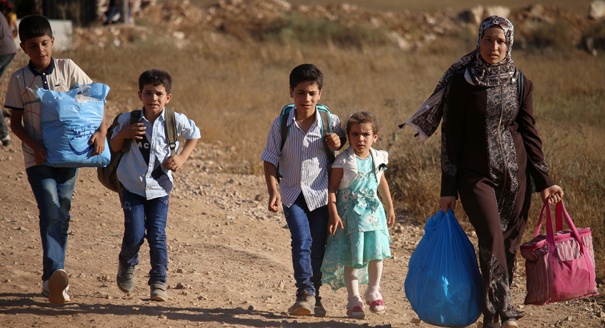A lawyer must compartmentalize. No matter how difficult it may be, lawyers need to separate between legal services and feelings when dealing with vulnerable families and their issues. However, sometimes one cannot help but get affected.
The Arab Renaissance for Democracy and Development (ARDD)’s legal team member, lawyer Basel Hawamdeh has gone through that when he was working on a refugee family’s problem. The Mafraq-based Syrian family was adrift after the father abandoned them and left them fatherless and paperless. In such a cruel world, they had no legal documents, as if they did not exist.
Hawamdeh was no stranger to cases concerning Syrian families whose world was shaken by the war. The loss of stability unsettles families, and the weakest members, the mothers and children, get the lion’s share of the impact.
Despite his regular encounter with such cases, he could not stop himself from feeling for the family as he says: “Empathizing with families pushes me to do my best to help them and not treat them as just clients.”
Seeking an answer to her troubles and sleepless nights, Tahani (alias) knocked on ARDD’s door in Mafraq. Her husband had abandoned her and his children in pursuit of a new life, turning his back on his poor family and fatherly duties.
Leaving his family after an argument with his wife and voluntarily returning to Syria and leaving them in the face of poverty does not seem to be the worst part. The wife and children had no documents proving the marriage or identities, not even birth certificates or a UNHCR registration.
“Tahani could not read or write and had learning disabilities which proved challenging when she tried to recall the date of her marriage and her children’s birthdates. She also had no one to support her financially as her family resided outside of Jordan.” Says Hawamdeh.
All Hawamdeh had was that the family lived in an irregular camp nearby Mafraq’s farms. When she had an argument with her husband, he decided to return to Syria despite his children’s lack of documentation.”
He set his plan to handle the case and get the family officially recognized, he says “We sought support from everyone until we provided them with the required documentation from each relevant authority. We worked with the courts and police stations to issue and notarize all documents.”
“It was then time to register the family with UNHCR. We issued a marriage certificate, proof of parentage, and an MoI-card. This required a court case” He added.
Today, the family lives in Al-Khaldyeh area as Hawamdeh happily says: “they are having a stable and normal life. Tahani was able to enroll her children in school using their documents.”
Hawamdeh has 22 years of experience as a lawyer with 8 of them spent with ARDD’s legal aid department. Based on his experience, he believes such issues, facing Syrian and Palestinian refugees in specific, require effort to solve and protect families and their rights.
Incomplete or absent documentation is a challenge facing refugees, especially women whose marriage was not legally documented in Jordan, as well as children who lack proof of citizenship and therefore lose access to health, educational, and social services.
“All lines of work revolve around financial profit, but if legal work stemmed from that and only that, we lost our humanity.” Says Hawamdeh.
He believes that “one must desire to help people even if the income was low” and that legal aid work is “life-supporting”, providing support regardless of people’s identities as “many people face injustice and require support”.
Hawamdeh stresses the importance of legal and rights awareness for refugees and vulnerable persons, therefore, “civil society organizations must raise legal awareness to protect the rights of children, women, and families.”


